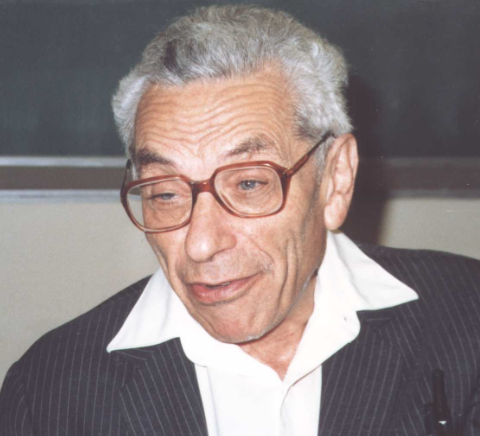March 26: Paul Erdős (1913)
Highly regarded by mathematicians in his field, around 1965 a colleague, Casper Goffman, invented the “Erdős Number” to indicate the proximity of collaboration with the great mathematician: if you had collaborated with him, your “Erdős Number” was 1, if you had collaborated with someone who had collaborated with Erdős, your number was 2, and so on. He worked so tirelessly at mathematics in part because he was fueled by caffeine and Benzedrine. This substance habit became so notorious among his friends that one of them quipped, “A mathematician is a machine for turning coffee into theorems.”
Erdős was also regarded as an eccentric in behavior and vocabulary. What little money he received for his mathematical work he gave away: to relatives, to colleagues, to students, even to strangers. Although an agnostic atheist, to him, to give a mathematical lecture was for him “to preach.” Indeed, he visualized God as the keeper of “The Book,” a repository of the best and most elegant proofs for mathematical theorems. In a 1985 lecture Erdős said, “You don’t have to believe in God, but you should believe in The Book.” And, when he saw a particularly beautiful mathematical proof, he would exclaim, “This one’s from The Book!”
He also had his own word for God: the “SF” or “Supreme Fascist.” And, having lived through World War II and Hitler’s incursion into Hungary, Erdős had some knowledge of fascists. He took a similarly dim view of the SF, saying at one time, “The SF created us to enjoy our suffering. ... The sooner we die, the sooner we defy His plans.”** Or perhaps it was an eccentric joke: in a biographical video clip,† Erdős pointed out—
SF means Supreme Fascist — this would show that God is bad. I don't claim that this is correct, or that God exists, but it is just sort of half a joke. … As a joke I said, “What is the purpose of Life?” “Proof and conjecture, and keep the SF's score low.” Now, the game with the SF is defined as follows: If you do something bad the SF gets at least two points. If you don't do something good which you could have done, the SF gets at least one point. And if nothing — if you are okay, then no one gets any point. And the aim is to keep the SF's score low.”
In his own vocabulary, when a person had died, he had “left.” So on 20 September 1996, Erdős “left”—following a heart attack while attending a mathematical conference in Warsaw. He was 83 and doing what he loved, and perhaps the only activity at which he was competent. He is buried next to his mother and father in Budapest. It is said that for his epitaph, Paul Erdős suggested “Végre nem butulok tovább”—“I’ve finally stopped getting dumber.”
* Quoted from My Brain Is Open : The Mathematical Journeys of Paul Erdos (1998) by Bruce Schechter, p. 10. ** Quoted from The Man Who Loved Only Numbers : The Story of Paul Erdős and the Search for Mathematical Truth (1998) by Paul Hoffman, p. 4. † Video clip at this link.


